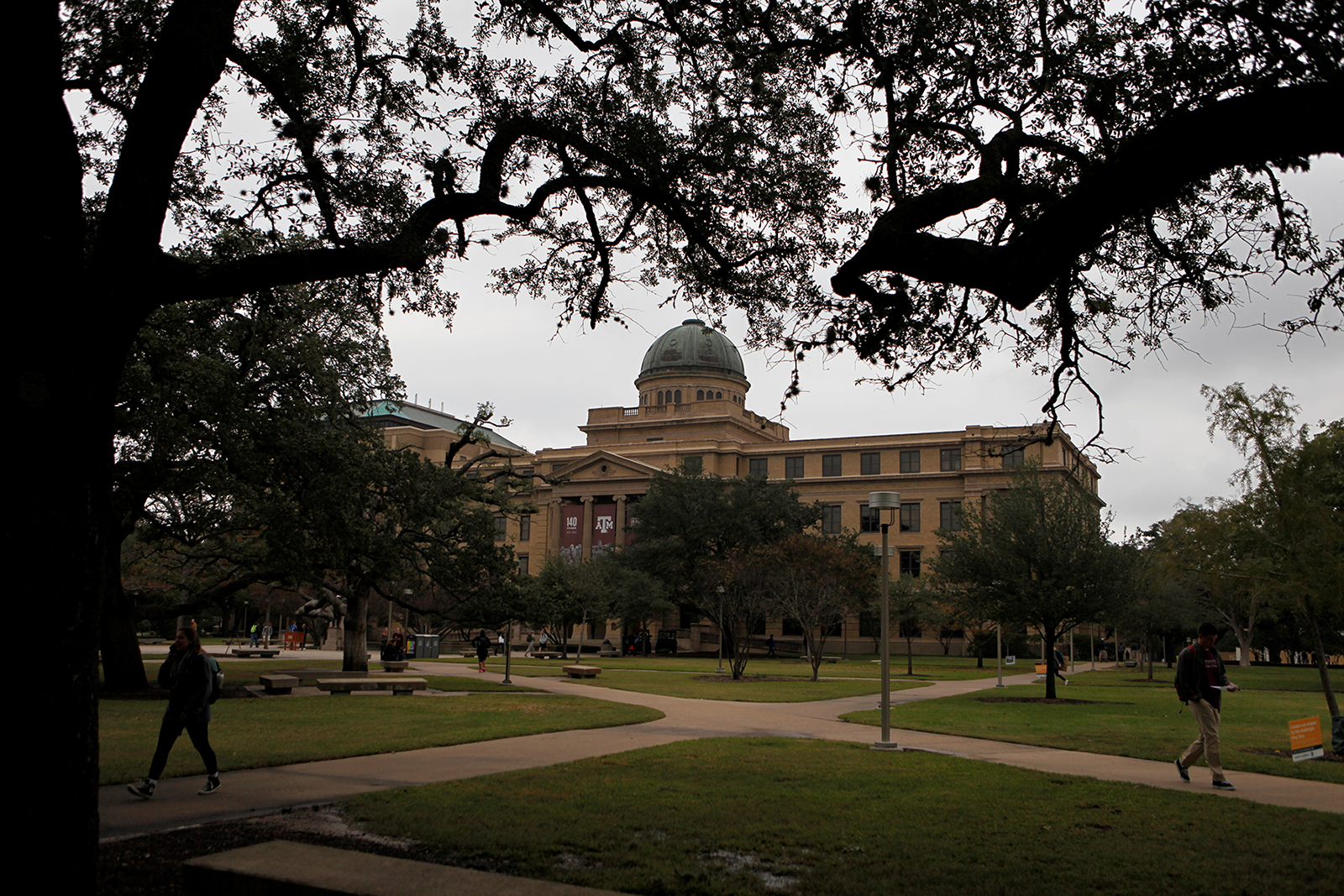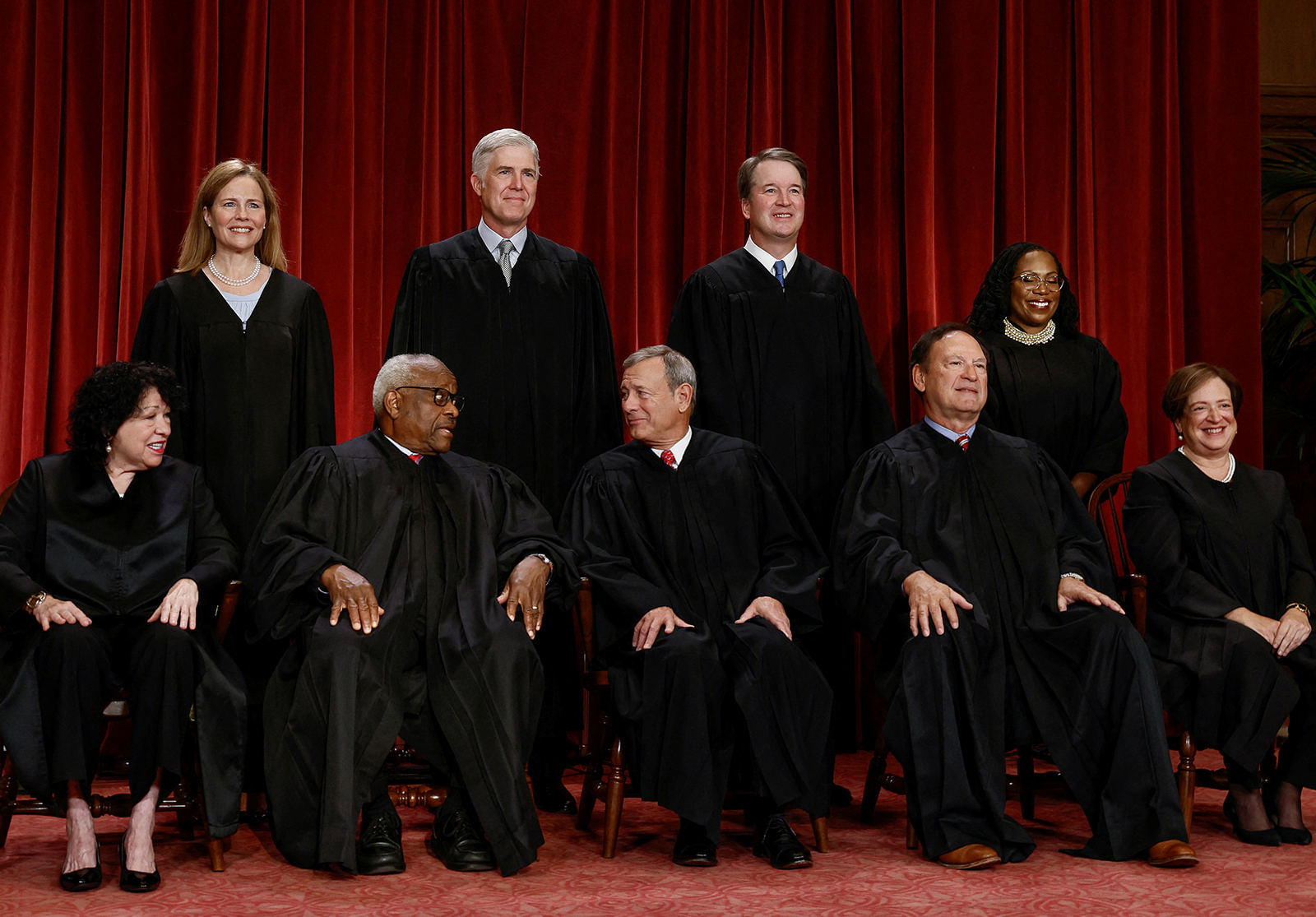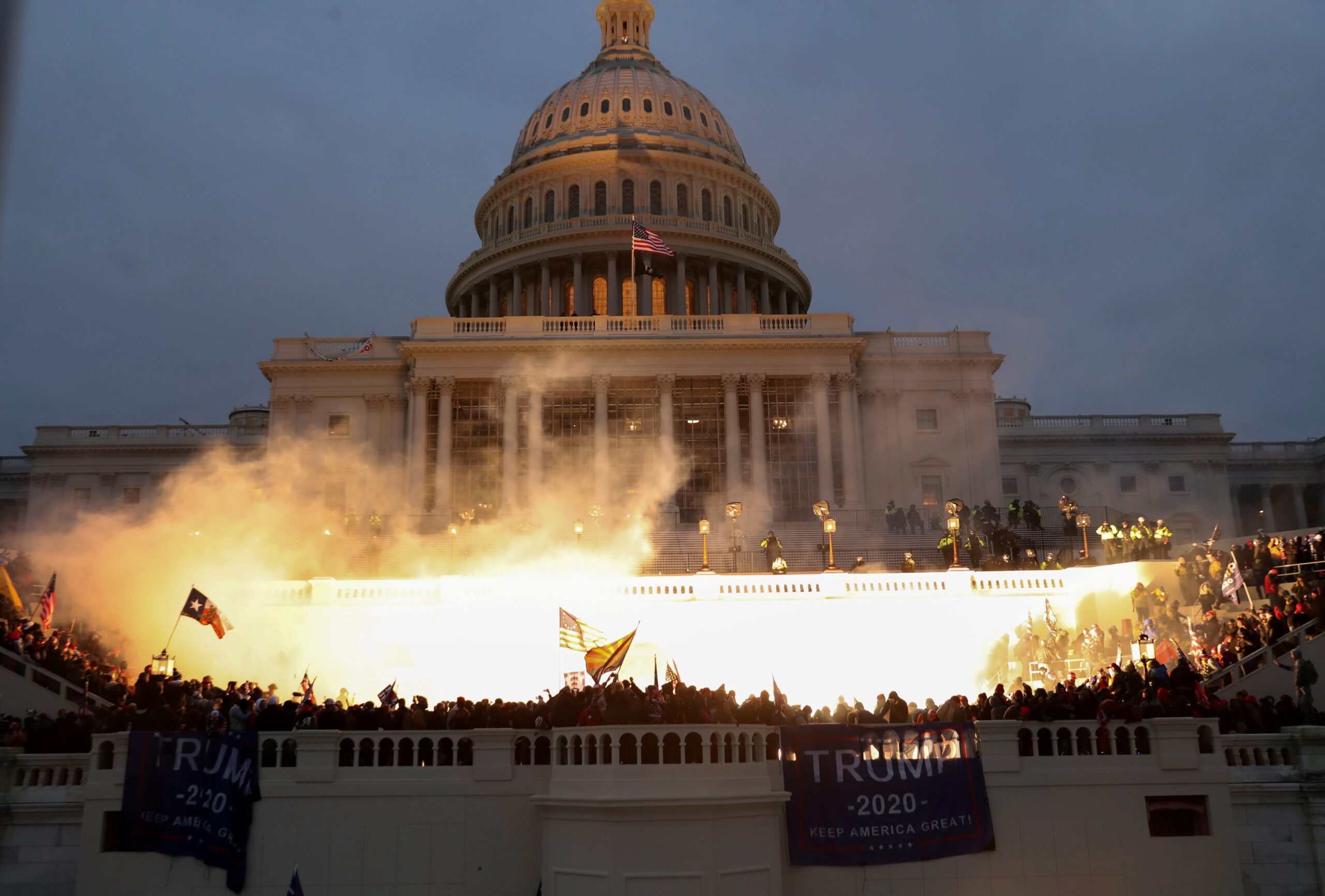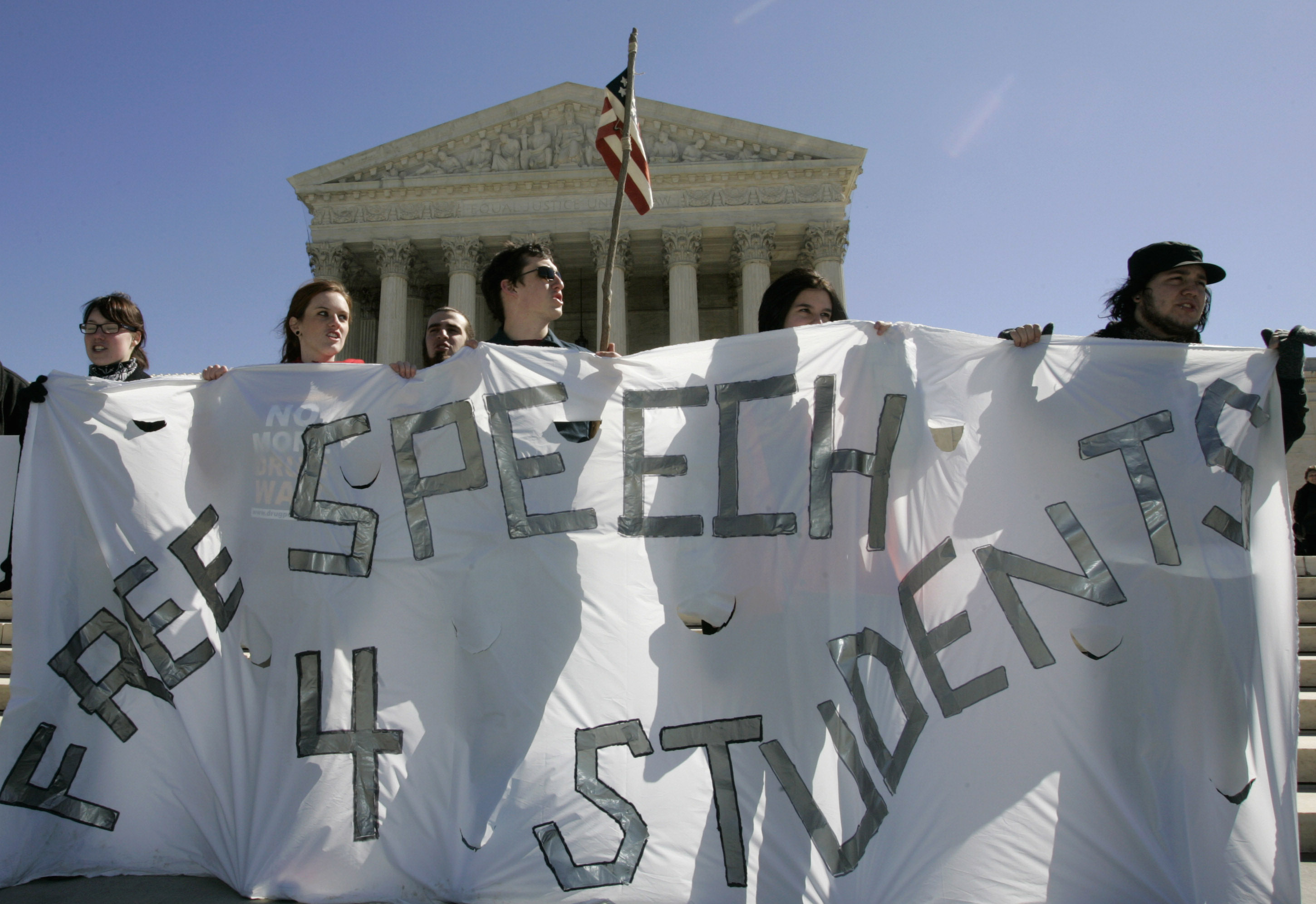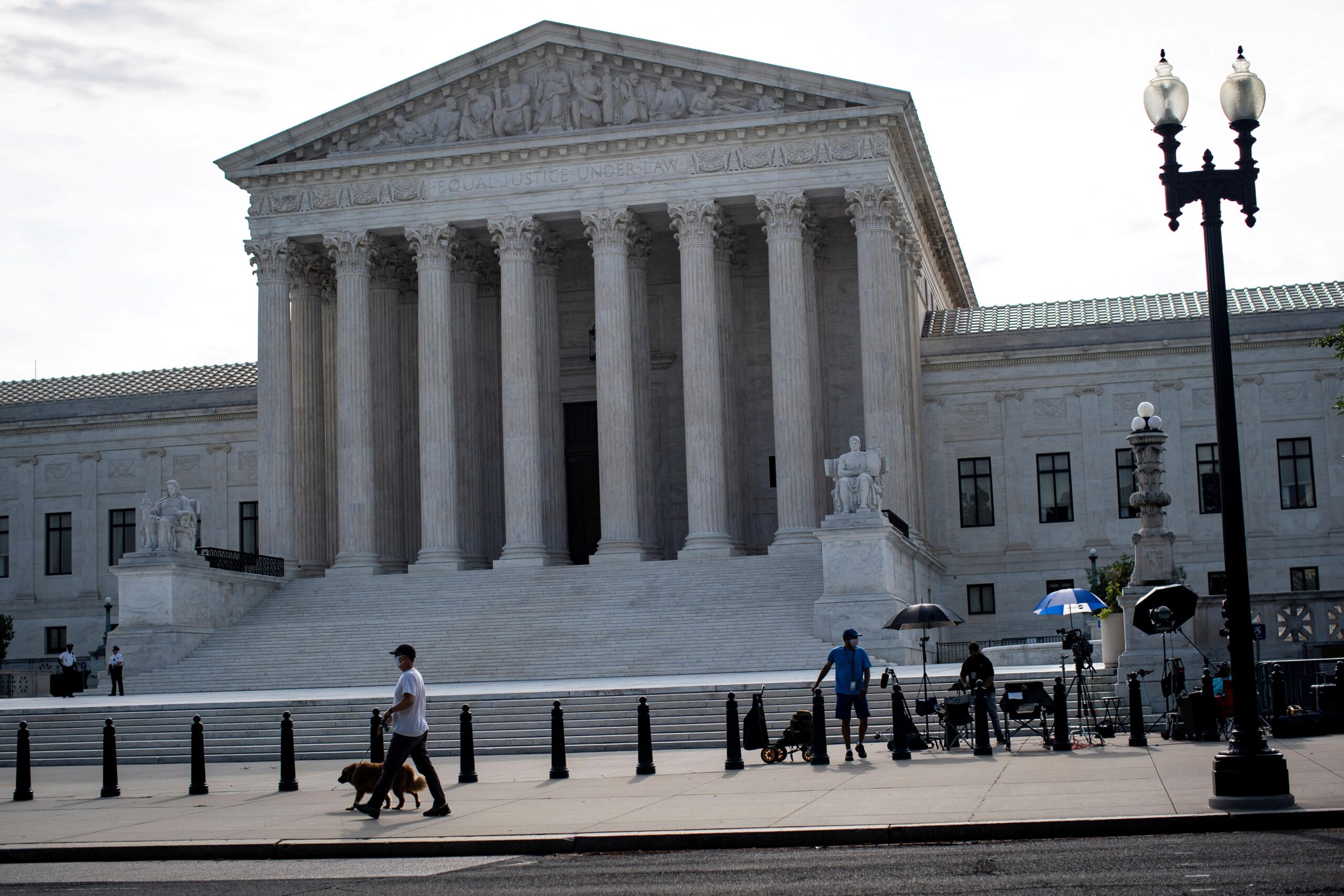Judge Allows Drag Show at Texas A&M Despite the University’s Ban
The ruling from Houston-based U.S. District Judge Lee Rosenthal blocked a university ban on drag performances on free speech grounds.
Key Takeaways of Supreme Court Oral Arguments in United States v. Hansen
The Supreme Court heard oral arguments March 27 in United States v. Hansen, a case that questions whether a clause of a federal statute which criminalizes the encouragement of illegal immigration to the United States violates the First Amendment.
Supreme Court Needs to Clarify True Threat Exception; Case Out of Colorado Could Be the Vehicle
Today in this age of increased political polarization and the ubiquity of social media communications, the need for a clear definition of what exactly constitutes a true threat is even more important.
Teacher Guide: Disinformation and the First Amendment
Disinformation is more pernicious and widespread today than at any other point in history, largely because of social media and the Internet. For instance, it is now widely known—and verified by the U.S. intelligence community—that Russians interfered with the 2016 presidential election.
Federal Appeals Court Panel Upholds Virginia Sign Restrictions Near Highways
Virginia law that prohibits signage “within the limits of any highway” does not violate the First Amendment, a federal appeals court has ruled. The appeals court also rejected a vagueness challenge to the Virginia scheme, even though there is no express distance listed in the law regarding how close is “within the limits.”
Students of All Ages Should Not Lose First Amendment Rights at School
Two elementary school students in Ardmore, Oklahoma were pulled from their public school classrooms for wearing “Black Lives Matters” t-shirts,” reports The New York Times. Such action likely violates the First Amendment, including the U.S. Supreme Court’s landmark decision protecting student-initiated expression in the public schools—Tinker v. Des Moines Independent School District (1969).
Can a Public Body Censure Its Members Without Raising First Amendment Concerns?
A public body censures one of its members who had been criticizing the body, filing lawsuits against the body, and accusing the body of not complying with state law. The public body then censures the member. The member claims that the censure was a retaliatory act against his critical speech. This scenario forms the basis of the case, Houston Community College System v. Wilson, that the Supreme Court will review this term.
Justices Question Whether Student’s Snapchat Rant Caused a Substantial Disruption
In oral arguments on April 28th in a case involving a former high school student kicked off her cheerleading squad for a profane social media post, the Court explored whether school officials could discipline the student under the Supreme Court’s decision in Tinker v. Des Moines Independent Community School District (1969).
